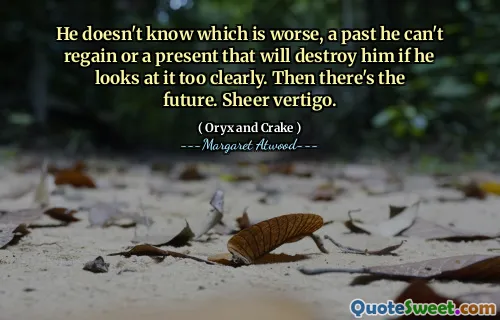Watch out for the leaders, Crake used to say. First the leaders and the led, then the tyrants and the slaves, then the massacres. That's how it's always gone.
In Margaret Atwood's "Oryx and Crake," the character Crake warns about the inherent dangers of leadership and the societal structures that evolve from it. He suggests that the dynamics between leaders and their followers create a hierarchy that can lead to oppression and violence. This progression typically starts with leaders rising to power, followed by those who support them, eventually giving way to tyrannical rule and the suffering of the masses.
Crake's perspective underscores a grim view of human history, indicating that such cycles are inevitable. This reflection serves as a cautionary tale about how power can corrupt and lead to atrocities, highlighting the need for vigilance against those who seek to dominate. It suggests that an awareness of the past is crucial to prevent repeating such devastating patterns in societal behavior.






